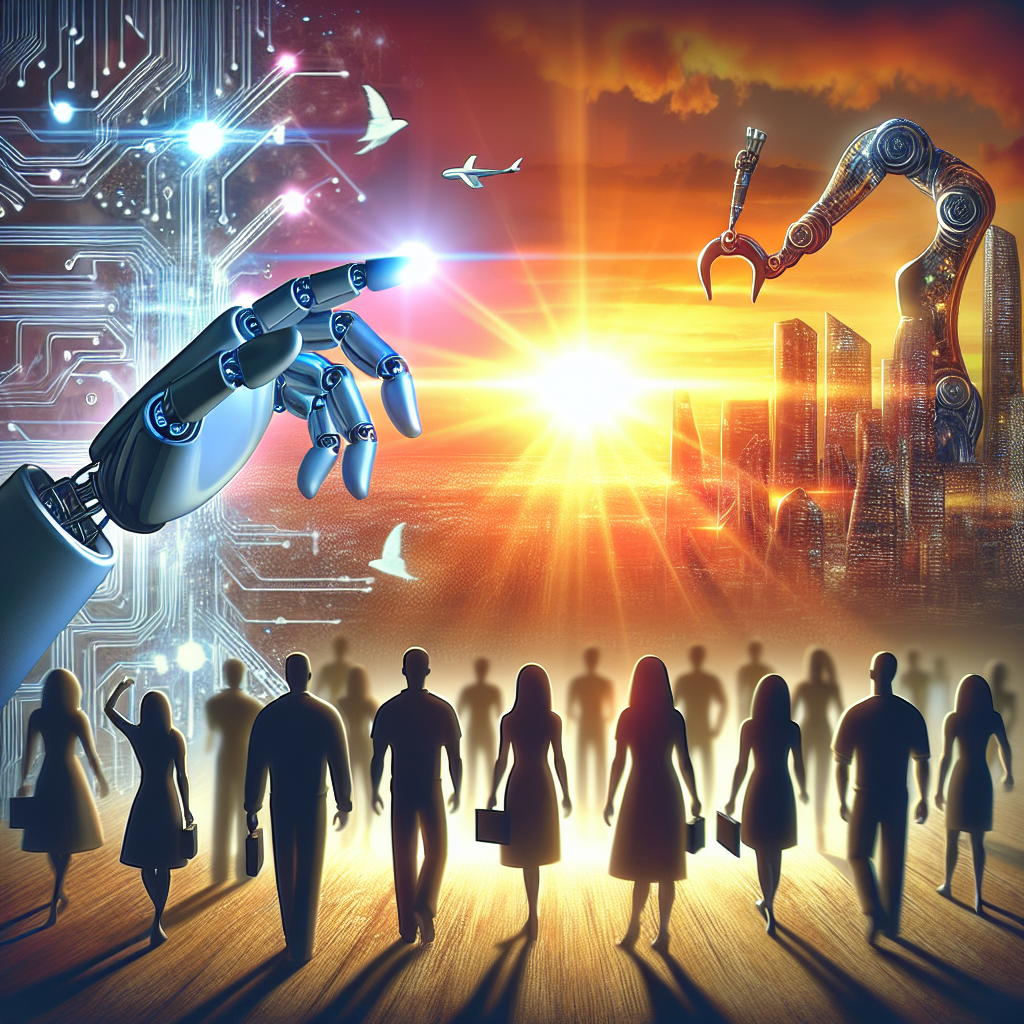Artificial General Intelligence (AGI) is a term used to describe the hypothetical ability of a machine to perform any intellectual task that a human can do. While we are still far from achieving AGI, advancements in artificial intelligence (AI) have already begun to impact the way we work. As AI continues to evolve, it is important to consider how it will shape the future of work and the job market.
In this article, we will explore the potential implications of AGI on the job market, the challenges and opportunities it presents, and how individuals and organizations can prepare for this technological shift.
The Impact of AGI on the Job Market
One of the most significant impacts of AGI on the job market is automation. As AI systems become more advanced, they will be able to perform a wider range of tasks that are currently done by humans. This has the potential to lead to job displacement in certain industries, as machines become more efficient and cost-effective than human workers.
According to a report by McKinsey & Company, up to 30% of tasks in 60% of occupations could be automated with existing technology. This means that millions of jobs could be at risk of automation in the coming years. Jobs in industries such as transportation, manufacturing, and customer service are particularly vulnerable to automation, as AI systems become more capable of performing tasks traditionally done by humans.
However, it is important to note that while some jobs may be displaced by automation, new jobs will also be created as a result of advancements in AI. For example, roles in AI development, data analysis, and cybersecurity are expected to see significant growth in the coming years. The key is for individuals to adapt and acquire the skills needed for these new roles.
Challenges and Opportunities
The rise of AGI also presents a number of challenges and opportunities for businesses and workers. On the one hand, automation has the potential to increase productivity, reduce costs, and improve efficiency in many industries. This can lead to new opportunities for growth and innovation, as companies are able to leverage AI to streamline processes and develop new products and services.
However, the increased use of AI also raises concerns about job security and income inequality. As machines become more capable of performing tasks that were once done by humans, there is a risk of widespread job displacement, particularly for workers in low-skilled and routine-based occupations. This could exacerbate existing inequalities in the job market, as those with the skills needed to work alongside AI systems are likely to benefit the most.
Another challenge is the ethical implications of AI, particularly in terms of privacy and data security. As AI systems become more advanced, they will have access to vast amounts of data about individuals and organizations. This raises concerns about how this data is used, who has access to it, and how it is protected from misuse.
Preparing for the Future of Work
In order to prepare for the future of work in the age of AGI, individuals and organizations need to adapt and evolve. This includes acquiring new skills, embracing lifelong learning, and fostering a culture of innovation and creativity.
For individuals, this means staying up-to-date with the latest developments in AI and acquiring the skills needed to work alongside machines. This may involve learning how to code, developing expertise in data analysis, or honing soft skills such as critical thinking and problem-solving. Lifelong learning will be essential for individuals to stay competitive in a rapidly changing job market.
For organizations, preparing for the future of work means investing in training and development programs for employees, fostering a culture of innovation and experimentation, and reevaluating job roles and responsibilities in light of AI advancements. Companies that are able to adapt and embrace AI as a tool for growth and innovation will be well-positioned to thrive in the future.
FAQs
Q: Will AI replace all jobs in the future?
A: While AI has the potential to automate many tasks currently done by humans, it is unlikely that all jobs will be replaced by machines. Instead, AI is more likely to augment human workers, allowing them to focus on more strategic and creative tasks.
Q: How can individuals prepare for the future of work in the age of AGI?
A: Individuals can prepare for the future of work by acquiring new skills, staying up-to-date with the latest developments in AI, and embracing lifelong learning. This may involve learning how to code, developing expertise in data analysis, or honing soft skills such as critical thinking and problem-solving.
Q: What are the ethical implications of AI in the workplace?
A: The rise of AI in the workplace raises concerns about privacy, data security, and job displacement. It is important for organizations to establish clear guidelines and policies around the use of AI, as well as to ensure that employees are equipped to work alongside machines in an ethical and responsible manner.
In conclusion, AGI has the potential to revolutionize the way we work, with the rise of automation and AI presenting both challenges and opportunities for individuals and organizations. By preparing for the future of work and embracing the potential of AI, we can ensure that we are well-equipped to thrive in a rapidly changing job market.

